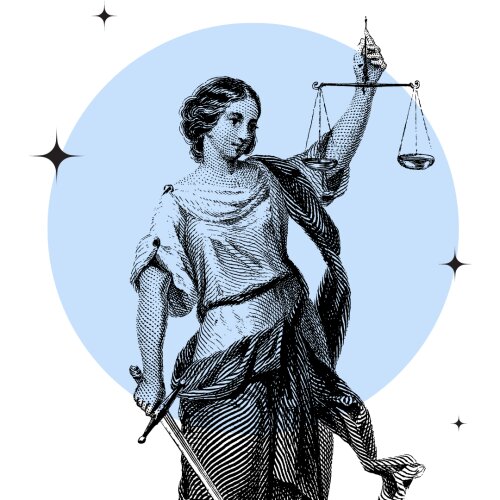Best Guardianship Lawyers in India
Share your needs with us, get contacted by law firms.
Free. Takes 2 min.
Or refine your search by selecting a city:
List of the best lawyers in India
India Guardianship Legal Questions answered by Lawyers
Browse our 1 legal question about Guardianship in India and read the lawyer answers, or ask your own questions for free.
- Can I file a cheating case against my daughter as I don't know about her where abouts
- I regret to call her my daughter as I don't have knowledge about her whereabouts. I have invested lakhs of rupees in her schooling, college hostel, and tuition fees and I have sent her for higher studies to the US to do her MS. But I have no knowledge about... Read more →
-
Lawyer answer by Aggarwals & Associates
Yes, you can file a complaint at a nearby police station for house trespass.
Read full answer
About Guardianship Law in India
Guardianship law in India is a crucial legal area that addresses the responsibility of care, custody, and decision-making for individuals who are incapable of managing their own affairs. This could include minors or adults with mental or physical disabilities who are unable to take care of themselves. The legal framework around guardianship is primarily governed by the Guardians and Wards Act, 1890, which applies to guardianship and custody of children, alongside personal laws specific to different religions. The Mental Healthcare Act, 2017 also plays a significant role concerning adults with mental illnesses.
Why You May Need a Lawyer
There are several situations where individuals might find themselves in need of legal advice regarding guardianship. Some common scenarios include:
- Disputes regarding the guardianship of a child, especially in cases of divorce or separation.
- The need for guardianship of adults who are mentally or physically challenged.
- Disagreements among family members over who should be appointed as a guardian.
- Situations involving the appointment of a legal guardian by testamentary or natural means.
- Application processes for becoming a guardian.
- Legal compliance and regulatory issues about the welfare of minors or incapacitated adults.
Legal guidance ensures that the guardianship arrangements are in the best interest of the person who needs care and within the framework of the law.
Local Laws Overview
Key aspects of local laws in India that are relevant to guardianship include:
- Guardians and Wards Act, 1890: This is the primary statute governing the appointment and functioning of guardians for minors.
- Hindu Minority and Guardianship Act, 1956: Applies to Hindus, outlining the rules regarding guardianship including who can be appointed as a guardian.
- Muslim Personal Law (Shariat) Application Act, 1937: Dictates rules related to guardianship for Muslims, which is influenced by customary law.
- The Mental Healthcare Act, 2017: Concerns the rights and processes related to guardianship of persons with mental illness, focusing on their care and treatment.
Frequently Asked Questions
What is the purpose of guardianship?
Guardianship is established to protect and manage the affairs of those who are unable to do so themselves, either due to age or incapacitation.
Who can become a guardian in India?
Typically, a guardian can be a natural guardian (like parents), a testamentary guardian (appointed through a will), or appointed by the court.
What are the responsibilities of a guardian?
A guardian is responsible for the care, welfare, and management of the individual and their property for whom they are appointed.
Is there a difference between custody and guardianship?
Yes, custody pertains to the care and control of a child, while guardianship involves broader responsibilities, including managing the child's estate and making legal decisions.
Can guardianship be challenged in India?
Yes, it can be challenged in court, especially if it is not in the best interest of the person needing guardianship.
How is guardianship of a mentally ill person determined?
The Mental Healthcare Act, 2017 provides a framework for appointing guardians through the Mental Health Review Boards and courts.
What rights does a guardian have?
The guardian has the rights to make decisions about the person's personal and property matters, but always in their best interest, as determined by the law.
How does one apply for guardianship?
Application is made through a petition in the appropriate court, which will deliberate based on the best interest of the person requiring guardianship.
What happens if a guardian mismanages their responsibilities?
If a guardian fails in their duty, legal proceedings can be initiated to remove them and appoint another suitable guardian.
Can a guardianship arrangement be temporary?
Yes, courts can appoint temporary or interim guardians in urgent cases pending the final decision.
Additional Resources
For further assistance, you may contact or refer to:
- State Legal Services Authorities: Offer free legal aid to eligible individuals including guidance on guardianship issues.
- Department of Social Justice and Empowerment, Govt. of India: Provides resources related to disability rights and guardianship.
- Child Welfare Committees (CWC): These committees address matters related to children's welfare.
- National Institute of Mental Health and Neurosciences (NIMHANS): Offers guidelines and support for mental healthcare and related guardianship issues.
Next Steps
If you find yourself needing legal assistance in guardianship matters, consider the following steps:
- Consult a Lawyer: Seek professional legal advice to understand your rights and obligations under Indian guardianship laws.
- Gather Documentation: Collect and organize all relevant documents, such as birth certificates, medical records, and any existing legal documents related to the person in need.
- File a Petition: Work with your lawyer to file a petition in the appropriate family or district court.
- Participate in Proceedings: Be actively involved in any court hearings or procedures to make your case for guardianship or opposition.
Seeking the right legal advice early can help ensure the best outcome for those needing guardianship.
Lawzana helps you find the best lawyers and law firms in India through a curated and pre-screened list of qualified legal professionals. Our platform offers rankings and detailed profiles of attorneys and law firms, allowing you to compare based on practice areas, including Guardianship, experience, and client feedback.
Each profile includes a description of the firm's areas of practice, client reviews, team members and partners, year of establishment, spoken languages, office locations, contact information, social media presence, and any published articles or resources. Most firms on our platform speak English and are experienced in both local and international legal matters.
Get a quote from top-rated law firms in India — quickly, securely, and without unnecessary hassle.
Disclaimer:
The information provided on this page is for general informational purposes only and does not constitute legal advice. While we strive to ensure the accuracy and relevance of the content, legal information may change over time, and interpretations of the law can vary. You should always consult with a qualified legal professional for advice specific to your situation.
We disclaim all liability for actions taken or not taken based on the content of this page. If you believe any information is incorrect or outdated, please contact us, and we will review and update it where appropriate.
Browse guardianship law firms by city in India
Refine your search by selecting a city.
















